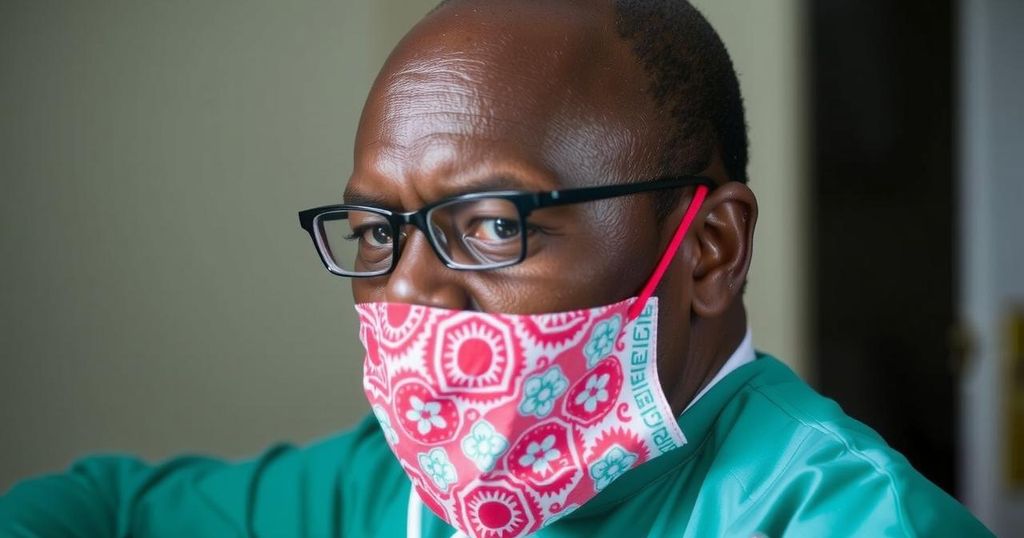A new illness in the DRC has caused over 70 deaths, affecting mainly young children with flu-like symptoms. Experts indicate it could be a respiratory disease but remain cautious due to insufficient data. The country’s poor healthcare infrastructure complicates the situation, prompting calls for enhanced public health measures and further investigation into the illness’s origin and transmissibility.
A mysterious illness in the Democratic Republic of Congo (DRC) has become a subject of concern due to its fatal impact, with over 70 deaths reported in the Panzi health zone of Kwango province. The illness, labelled by health authorities as “Disease X,” has afflicted approximately 380 individuals, notably affecting children under five. Symptoms observed are reminiscent of influenza, including fever, headaches, cough, and anemia. Jean Kaseya, head of the Africa Centres for Disease Control and Prevention, indicated that initial diagnostics suggest a respiratory illness, yet the full nature of the disease remains uncertain pending laboratory verification. Limited infrastructure and logistics in the DRC complicate the response to this health crisis, emphasizing the need for caution in addressing potential public health implications.
Experts such as Dr. Peter Hotez and Dr. Gavin Harris articulated various speculative causes of the illness based on its symptoms. Dr. Hotez proposed it could be severe malaria or an emerging viral pathogen. He further noted the challenge in confirming the diagnosis due to the remote location of the outbreak. Both experts emphasized the challenges in diagnosing unknown illnesses in underdeveloped regions where public health surveillance is weak.
The likelihood of the illness expanding to epidemic proportions remains unclear, as both doctors highlighted the critical need for further investigation to determine the pathogen’s threat level. Dr. Hotez pointed out the importance of existing vaccines and treatments in managing potential outbreaks, as seen with Ebola in 2019. Both experts acknowledged that recurring instances of such unexplained illnesses in the DRC may reflect broader societal issues, including climate changes and inadequate health infrastructure. Yet, these events also underscore the necessity of robust public health measures such as effective hygiene, sanitation, and the provision of medical resources.
The article discusses a recently identified mysterious illness in the Democratic Republic of Congo, which has resulted in a significant number of fatalities and raised public health alarms. As local and international health officials investigate the outbreak, there is a prevailing uncertainty regarding the disease’s nature, transmission, and potential threat level. Given the region’s inadequate healthcare facilities and transportation challenges, experts emphasize the need for improved public health infrastructure and hygiene practices to manage and mitigate future outbreaks.
The emergence of a deadly unknown illness in the Democratic Republic of Congo underscores critical public health challenges that could escalate if left unaddressed. With over 70 deaths reported and hundreds affected, health officials and experts advocate for immediate investigation and enhanced healthcare responses. The susceptibility of the region to such threats necessitates improved public health strategies to ensure timely diagnosis, treatment, and prevention of possible epidemics.
Original Source: www.usnews.com






